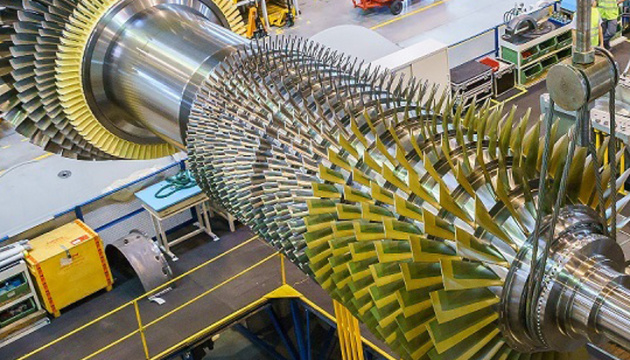Representatives of the Gas TSO of Ukraine represented by CEO of the GTSOU Sergiy Makogon and the Director of Government and International Affairs Olga Bielkova joined the International Working Group on Sanctions Against russia (McFaul-Yermak group), who called on the Canadian government, supported by the German and USA governments, to cancel the decision to refuse from sanctions. In addition, the group’s experts called on Germany to block the transfer to russia of the first of the Siemens turbines, which has already been delivered from Canada to Germany.
The signatories of the appeal emphasized that the abandonment of export controls creates an unacceptable precedent that will only encourage the aggressor country to continue “arming” its energy levers of influence on Europe through blackmail under the guise of dubious technical justifications.
“Instead of ‘opposing russia’s efforts to weaponize energy resources’, the transfer of the turbine sets a worrying precedent that russian energy pressure could force the West to join the unjustified demands of the putin regime. Even if Gazprom’s dubious technical justification were true, the kremlin could easily renew gas supplies to Europe via other export-restricted routes. For example, the Ukrainian GTS, has enough free capacity. Therefore, Moscow’s decision not to do so clearly illustrates that the true motivation is to use energy to pressure Europe,” – the statement said.
In turn, the Gas TSO of Ukraine directly addressed a letter to the Parliament of Canada with a similar proposal and facts about Gazprom’s capabilities to supply large volumes of gas along the Ukrainian route, in particular, through the Sudzha connection point.
Over the past two months, Gazprom has been transporting 40-42 million cubic meters of gas per day along the Ukrainian route through the Sudzha point, although the reserved and paid capacity is 77.2 million cubic meters per day. The additional capacity specified in the agreement with the russian company is another 9.8 million cubic meters of gas per day. That is, in general, gas transit to the EU may be at least 87 million cubic meters of gas per day even tomorrow. At the same time, the total technical capacity of gas transportation through the Sudzha point is 244 million cubic meters per day.
“Europe, the USA, and Canada must consolidate their efforts and refuse to make concessions to the kremlin, which perceives the fulfillment of its conditions as weakness and continues its strategy of aggression and blackmail. To increase the volume of gas supplies to the EU, russia does not need a turbine, it does not even need Nord Stream 1, since there is an alternative – the Ukrainian GTS, which can replace russian routes and has recently transported much larger volumes”, – Olga Bielkova said.
